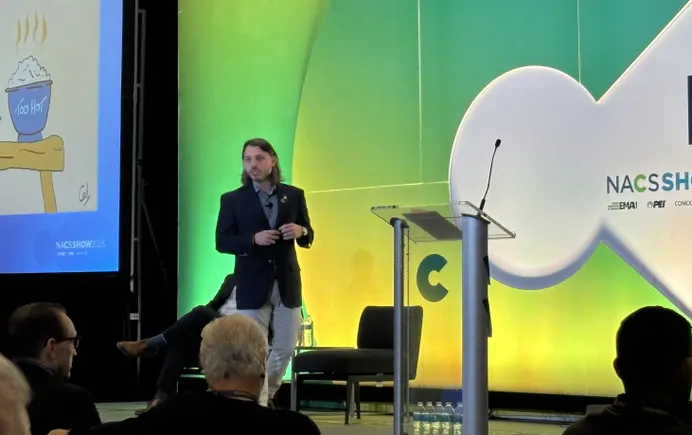SAN DIEGO — Despite all the hype, artificial intelligence likely won’t take recruiters’ jobs, Jeremy Eskenazi, managing principal at Riviera Advisors, Inc., told a SHRM 2025 audience Tuesday.
Why’s that? “Nothing will ever replace the power of relationships,” he said. “And at some point somebody has got to pick up the damn phone.”
But to keep themselves crucial to an organization’s strategic function, recruiters need to move beyond thinking of themselves as administrators and servers, Eskenazi said, and evolve into consultants that partner with hiring managers.
Traditional recruiters work reactively, he noted, waiting for requisitions to come in, scheduling interviews and focusing on filling positions. Too often, they feel they work for hiring managers instead of alongside them.
On the other hand, recruiters that prove themselves invaluable are trusted advisors, focusing more of their time on high-value, strategic work like developing proactive sourcing methods, building diverse talent pipelines, becoming industry experts and partnering with leadership on long-term talent needs.
To develop their potential and shift away from low-value, administrative work, recruiters should automate whenever possible tasks like writing job descriptions, scheduling interviews and responding to generic emails, Eskenazi said.
They should learn to say “no” when necessary and establish boundaries with hiring managers who demand 24/7 access; “If you say ‘yes’ to everything you’re asked for, you’re just like the Chili’s server,” he said.
The strategic role also involves learning to manage expectations. If a hiring manager wants to secure a Harvard-educated professional with 10 years of experience for a position in California and only pay them $60,000, for example, that person may need a reality check, Eskenazi said — and a strategic recruiter should not be afraid to provide that.
Partnering with a hiring manager includes knowing when to say “no,” although the approach can be more diplomatic. “We never say ‘no’ directly, we say ‘Hm, that’s interesting … let me get back to you,’” he said; further research can help provide convincing evidence that a request is unreasonable.
Approaching requests with curiosity and thoughtful questions can help hiring managers reframe their expectations as well. For example, Eskenazi said, if a hiring manager asks for someone exactly like the last hire, a recruiter might say, “What made that person successful? Could another skill set work just as well?” If they ask for 15 years of experience and 10 credentials, a recruiter might counter by asking them to prioritize just three must-have skills.
An intake meeting sets the right foundation, he said. Recruiters should use them to ask: “What is the real business problem this hire needs to solve? What has worked (or failed) in previous hiring efforts for this role? If we can’t find a perfect match, what are the 2-3 core skills that matter most?”
Then they should follow up with an email or a checklist both parties agree on.
But while strategic recruiters can and should take on a more active role, they need to know when to step back.
“Hiring is very emotional,” Eskenazi said, which is why recruiters should try to steer hiring managers toward the right candidate, but never insist on a final selection or say “I told you so.” If they don’t pick the right person, “you have to be OK with it.”






Leave a Reply